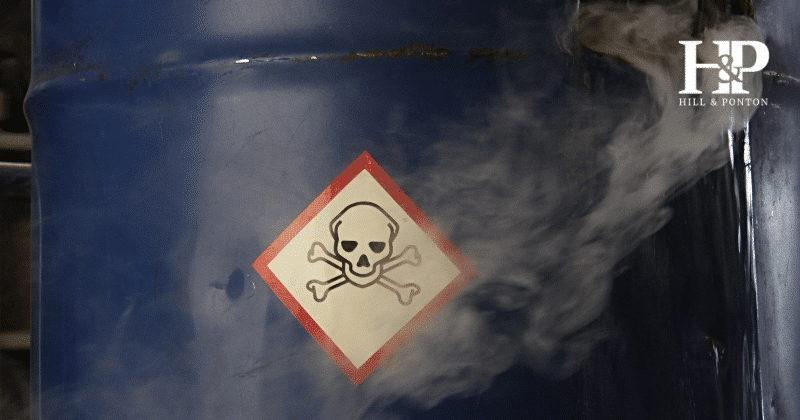The Hepatitis C virus is an infectious disease that can lead to serious health complications. While some U.S. veterans may have contracted this disease during military service, the Department of Veterans Affairs often denies claims for Hep C benefits.
Why?
Hep C can remain in the body without causing symptoms for decades. This makes it complicated to show service connection and make a claim for disability benefits. However, it’s not impossible.
With the help of your health care provider and a veterans disability lawyer, former service members with Hep C can strengthen their claims for veterans benefits. Here’s what veterans living with Hepatitis C should know.
What Is Hepatitis C?
HCV, commonly known as Hepatitis C (Hep C) is an infection caused by a virus that affects the liver by causing inflammation and possibly leading to cirrhosis (liver damage), as well as other medical difficulties pertaining to the liver such as liver cancer. Hepatitis C can be either an acute or chronic liver disease.
Reports have noted that Hep C is very common in veterans. It’s already enough that there are high variables in traditional risks contracting Hep C for the general population of the US (non veterans). But veterans have additional exposures to Hep C, potentially due to military experiences, such as to inoculations, injection drug use, tattoos, blood transfusions, multiple sex partners (including prostitution), incarceration, as well as combat medical workers.
Causes of Hepatitis C
Just like any virus Hep C is contagious and can be contracted by contaminated blood (sharing razors, toothbrush, needle sticks, etc.), semen, as well as saliva. It is also said that an increased amount of exposure to alcohol, chemicals, poisons, toxins, as well as certain medications can lead to Hepatitis C. Other diseases can also play a major factor in contracting Hepatitis C.
Yes, you heard that right- exposure to long term use of certain medications can cause inflammation of the liver. Many common medications are said to possibly lead to drug induced hepatitis (liver inflammation). There medications include:
- Amiodarone
- Anabolic steroids
- Birth control pills
- Chlorpromazine
- Erythromycin
- Halothane (a type of anesthesia)
- Methyldopa
- Isoniazid
- Methotrexate
- Statins
- Sulfa drugs
- Tetracycline’s
- Amoxicillin-clavulanate
- Some anti-seizure medicines
- Nonsteroidal anti-inflammatory drugs (NSAIDs), such as ibuprofen, diclofenac, and naproxen
- OTC fever reducers and painkillers containing acetaminophen
Symptoms of Hepatitis C
You can be asymptomatic to Hepatitis C just as other viral infections. This means that you will not always have symptoms of this infection. It can go undetected for a very long time with no sign of the infection. Symptoms for this infection vary such as:
- Pain in the right upper abdomen
- Abdominal swelling due to fluid (ascites)
- Clay-colored or pale stools
- Dark urine
- Fatigue
- Fever
- Itching
- Jaundice (yellowing of the skin and Eyes)
- Loss of appetite
- Nausea and vomiting
Hepatitis C Treatment
Hepatitis C treatment includes antiviral medications. There have been some reports that state some veterans may be diagnosed but not undergoing/sticking to treatment due to compliance or efficacy when there are other medical and psychiatric conditions.
Other factors that went into treatment hurdles for veterans is cost of treatment. A 12 week treatment for veterans can average anywhere from 40-80 thousand dollars. In 2014 the VA was said to have spent about $500 million in treatment for veterans who were Hep C positive. There are about 174,000 possibly undiagnosed/untreated veterans with Hep C currently.
Can Hep C be cured? Prior to 2 years ago, HCV was not said to be a ‘curable’ disease. After successful treatment for Hep C your blood work may not detect the virus. Study shows that relapse in 1-2% may be rare but does not make it impossible to occur. The VA has requesting additional funds be provided for further treatment in general.
What does this mean for you? It is important to be aware of circumstances that could lead to contracting Hep C. As mentioned earlier, mass inoculations were extremely common in the military in the Vietnam era.
Can You Get VA Benefits for Hepatitis C
The medical community first started diagnosis Hepatitis C in 1989. Many veterans were infected, unbeknownst to them, in the 1950s, 60s, and 70s with Hepatitis C while they were in service. But they were never diagnosed with the illness until many years later.
The VA has recognized that many veterans were exposed to Hep C and has developed a list of risk factors:
- Organ transplants before 1992
- Blood transfusions before 1992
- Hemodialysis
- Exposure to blood
- Intravenous drug use
- High sexual activity
- Tattooing.
Even though the VA recognizes these exposures the VA still denies veterans service connection for Hep C because there is no nexus between service and the current disease.
VA Ratings for Hepatitis C
The VA uses 38 CFR § 4.114, Schedule of Ratings – Digestive System, to rate Hepatitis C. They break down the ratings as follows:
- 100%: Near-constant debilitating symptoms (such as fatigue, malaise, nausea, vomiting, anorexia, arthralgia, and right upper quadrant pain)
- 60%: Daily fatigue, malaise, and anorexia, with substantial weight loss (or other indication of malnutrition), and hepatomegaly, or; incapacitating episodes (with symptoms such as fatigue, malaise, nausea, vomiting, anorexia, arthralgia, and right upper quadrant pain) having a total duration of at least six weeks during the past 12-month period, but not occurring constantly
- 40%: Daily fatigue, malaise, and anorexia, with minor weight loss and hepatomegaly, or; incapacitating episodes (with symptoms such as fatigue, malaise, nausea, vomiting, anorexia, arthralgia, and right upper quadrant pain) having a total duration of at least four weeks, but less than six weeks, during the past 12-month period
- 20%: Daily fatigue, malaise, and anorexia (without weight loss or hepatomegaly), requiring dietary restriction or continuous medication, or; incapacitating episodes (with symptoms such as fatigue, malaise, nausea, vomiting, anorexia, arthralgia, and right upper quadrant pain) having a total duration of at least two weeks, but less than four weeks, during the past 12-month period
- 10%: Intermittent fatigue, malaise, and anorexia, or; incapacitating episodes (with symptoms such as fatigue, malaise, nausea, vomiting, anorexia, arthralgia, and right upper quadrant pain) having a total duration of at least one week, but less than two weeks, during the past 12-month period
- 0%: Nonsymptomatic
This is the same ratings schedule that the VA uses for other chronic liver diseases like Hepatitis B.
Service Connection for Hepatitis C
It’s not impossible to win a Hep C case; however, an expert medical opinion is almost always needed in order for a veteran to have a chance for VA approval. This medical evidence will be key in supporting your claim for VA disability benefits.
In order to be most effective, the medical expert should review all of the veteran’s records, particularly the records that shed light on any ways a veteran may have been exposed to Hep C. For example, organ transplants or blood transfusions prior to 1992, drug use (either intravenous or nasal), exposure to infected blood, and tattooing are all risk factors for Hep C.
The expert will need to consider all of the risk factors and circumstances of the veteran’s individual case, including any relevant epidemiological research regarding the prevalence of Hepatitis C, before giving an opinion. It is very important that the veteran fully disclose any relevant risk factors, so the medical expert can formulate an unbiased and thorough opinion.
In our practice, we often see Vietnam veterans who allege they contracted Hep C via air gun inoculations prior to service. They may also have allegations that they contracted Hep C in Vietnam via blood contact with wounded/dead bodies or via open sores as a result of jungle rot. However, in most of these cases, Hep C wasn’t diagnosed until many years after the Vietnam war.
Despite the delayed diagnosis in these cases, there may be good news. Medical literature is on the veteran’s side. The research shows that blood transmission occurs using air guns/jet inoculators, no matter how carefully done. Additionally, the research shows that that any blood transference between patients, no matter how small, represents a transmission opportunity for this disease. This research may help support the veteran’s medical records in their claim.
Medical Nexus for Hepatitis C
Remember that to obtain service connection, you have to show:
- Something happened in service
- That there is a current disability
- That there is a nexus (i.e. link) between the two.
I describe the nexus as a bridge. The closer you are from your time of discharge to filing a claim, the bridge between service and the current disability is short and easy to show. This might be the case if you were discharged this year and filed a claim the following month.
On the other hand, if you were discharged in the 1970s and are now claiming a disability based on something that happened decades ago the bridge is a long one and harder to prove.
Veterans facing hep C cases often face this “long bridge” scenario. This is especially true veterans who served in Vietnam, almost twenty years before the medical community could even diagnose this disease.
Since the disease can be dormant for years and not show itself for a long time this becomes an obstacle for veterans to overcome, because the VA will say that since the symptoms did not start for years after service it must not be related. This reasoning is against the weight of the medical literature on Hep C. Do not let VA deny a valid Hep C claim for this reason.
Legal Help for VA Hep C Compensation
If you’re seeking disability compensation for your Hepatitis C virus infection, legal support may be helpful. The attorneys at Hill & Ponton are available to review your case and represent you in your appeal. Contact us today for a free case evaluation.



